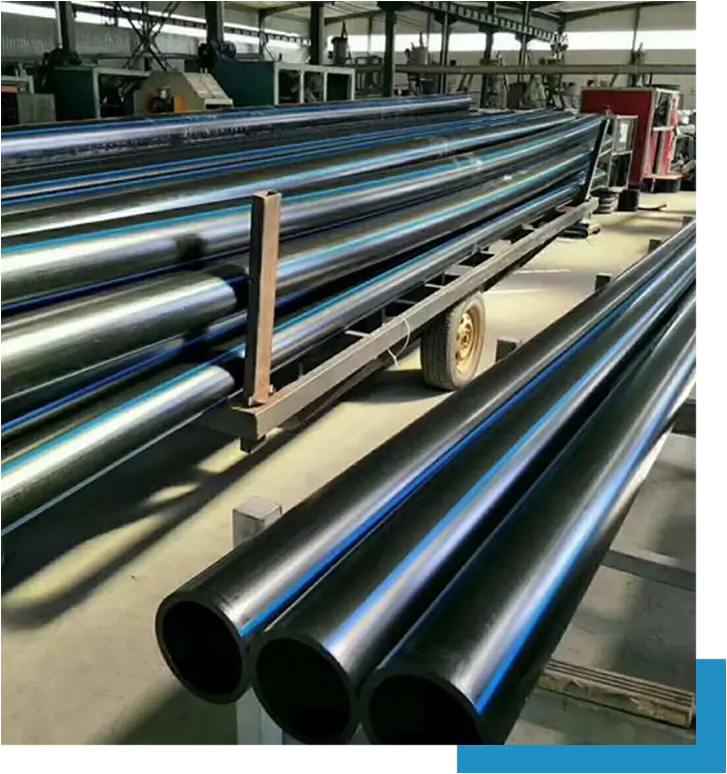Oct . 04, 2024 06:38 Back to list
hdpe water supply pipe service
HDPE Water Supply Pipe Service A Modern Solution for Water Distribution
High-Density Polyethylene (HDPE) is quickly becoming one of the most favored materials for water supply piping systems. Its unique properties make it an ideal choice for various applications, especially in modern water distribution networks. This article explores the benefits, applications, and importance of HDPE water supply pipes.
HDPE pipes are manufactured from thermoplastic, which grants them strength and flexibility. One of the standout features of HDPE is its outstanding resistance to corrosion and chemical degradation. Unlike traditional materials such as steel or concrete, HDPE does not rust or succumb to chemical reactions, ensuring a long-term solution for transporting potable water. This makes HDPE particularly suitable for regions where water quality may be affected by the piping material.
HDPE Water Supply Pipe Service A Modern Solution for Water Distribution
Installation of HDPE pipes is also advantageous. They can be joined using various methods, such as heat fusion, which creates a uniform and leak-free joint. This is particularly beneficial in reducing water loss—a significant concern in water supply systems. Moreover, HDPE’s lightweight nature simplifies transportation and handling, allowing for faster and more efficient installation procedures compared to heavier materials.
hdpe water supply pipe service

The environmental impact of HDPE pipes is another reason for their growing popularity. The production of HDPE is energy-efficient, and the pipes are 100% recyclable, aligning well with modern environmental standards. Using HDPE reduces the ecological footprint associated with water distribution systems and supports sustainability initiatives. Additionally, the long service life and reduced maintenance needs contribute to a lower environmental impact over time.
HDPE pipes are versatile and can accommodate various applications beyond potable water supply. They are widely used in sewage systems, stormwater management, and industrial fluid transportation. Their flexibility enables them to be installed in tight spaces and under challenging conditions, making them suitable for urban environments.
Safety is a paramount concern in water supply systems, and HDPE does not leach harmful chemicals, making it a safe choice for potable water applications. Regulatory agencies often endorse HDPE piping due to its compliance with health and safety standards, ensuring that the water delivered to consumers is safe and clean.
In conclusion, HDPE water supply pipes represent a modern, efficient, and environmentally friendly solution for water distribution. Their durability, resistance to corrosion, ease of installation, and safety make them a preferred choice for municipalities and industries seeking to improve their infrastructure. As we move toward more sustainable practices, the versatility and advantages of HDPE are likely to play an increasingly critical role in shaping the future of water supply systems. Embracing HDPE technology not only addresses current challenges but also prepares us for a resilient water supply infrastructure in the years to come.
-
High-Quality PVC Borehole Pipes Durable & Versatile Pipe Solutions
NewsJul.08,2025
-
High-Quality PVC Perforated Pipes for Efficient Drainage Leading Manufacturers & Factories
NewsJul.08,2025
-
High-Quality PVC Borehole Pipes Durable Pipe Solutions by Leading Manufacturer
NewsJul.08,2025
-
High-Quality PVC Borehole Pipes Reliable PVC Pipe Manufacturer Solutions
NewsJul.07,2025
-
High-Quality UPVC Drain Pipes Durable HDPE & Drain Pipe Solutions
NewsJul.07,2025
-
High-Quality Conduit Pipes & HDPE Conduit Fittings Manufacturer Reliable Factory Supply
NewsJul.06,2025

